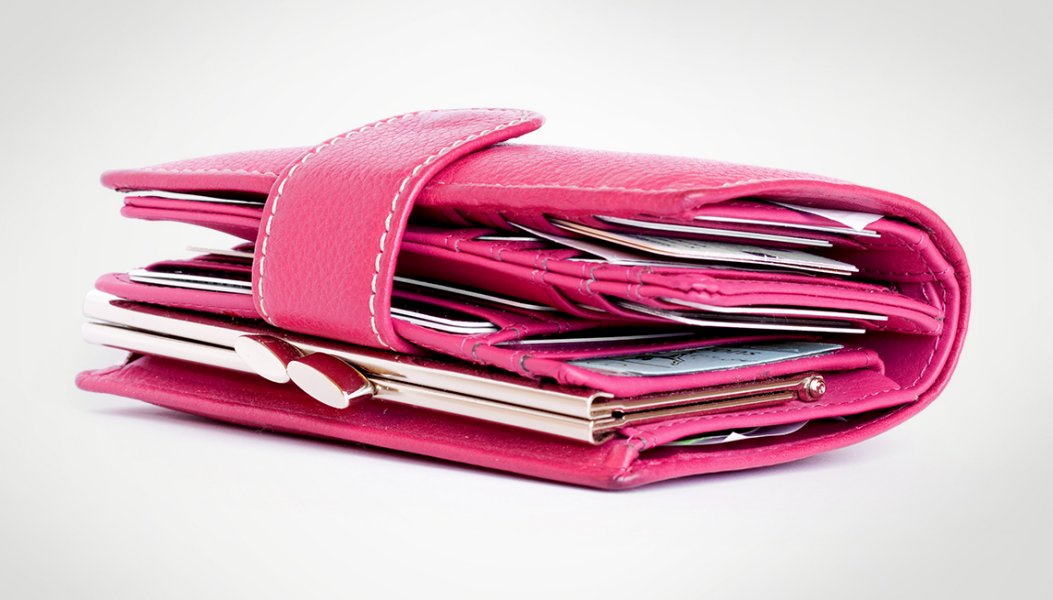10 Worst Things to Carry in Your Wallet
With identity theft rampant, keep only the essentials in your pocket or purse
by Katherine Skiba, AARP

In an episode of “Seinfeld,” Jerry’s neurotic friend George Costanza has so much stuff jam-packed into his wallet that it’s ridiculed as a “filing cabinet.” The wallet bulges with everything from Irish currency to a coupon redeemable at Orlando, Florida-area Exxons to filched packets of Sweet’N Low. Walking down the street, Costanza the pack rat tries to stuff one more thing inside and the billfold explodes, scattering its contents to the wind.
Jon Clay, vice president of threat intelligence for Trend Micro, a global cybersecurity firm, mentions the episode when talking about what consumers should not carry in their wallets lest they lose the valuable information. In an era in which identity theft is epidemic, the lessons of the old sitcom remain timely.
Pickpockets — and ne’er-do-wells who say “finders keepers” when they stumble on a lost wallet — aren’t after just your cash. When it comes to personally identifiable information, it may be that the original crook profits by reselling it, Clay says.
Worse, the crook may bring in accomplices and share the loot. After a lost wallet was pocketed in June at a casino in Davenport, Iowa, the thief kept the $800 inside and an ID card. Later, the rightful owner’s name and personal information was exploited to set up an online bank account to obtain a debit card and checks, and with accomplices, the first crook and his cohorts went on a spending spree at a half dozen merchants, later peddling some of their $5,600 in purchases on Facebook Marketplace, authorities said.
“We all think we are being careful, but it takes one second for a criminal to steal our wallet or purse,” says AARP’s Amy Nofziger, who oversees its Fraud Watch Network helpline, 877-908-3360.
“Limit what you carry to ensure you don’t put yourself at a greater risk,” she says. “Even though we hear about online crime every day, there are still many criminals waiting to get ahold of your personal belongings. They look for your wallet and purses at gyms, grocery stores and your car.”
How to keep your wallet safe
Since many merchants accept digital wallets, Clay says he’s apt to carry just a single credit card because he’s only encountered some gas stations that won’t let you pay with a digital wallet. These contain digital versions of your credit and debit cards, and you pay with a smartphone. Examples include Apple Pay, Samsung Pay and Google Pay.
A resident of Colorado, Clay also relies on the myColorado mobile app to store his driver’s license, vaccination record, vehicle registration and proof of auto insurance. So unless he’s traveling out of state, he avoids carrying those.
Even if you’re not as tech-savvy as Clay, your wallet can be leaner, and with respect to cybercrooks, meaner. Take some time to declutter and potentially spare yourself from some time and trouble cancelling accounts and obtaining new cards. First, consumer advocates say, make photocopies (or take smartphone photos) of the front and back of all your cards, so you know whom to contact if they go missing.
Here are the 10 things that he suggests you remove from your wallet and store in a safe place, such as a fireproof lock box or a safe deposit box depending on how often you need to access them:
- Social Security card.
- COVID-19 vaccination record card, which carries your date of birth and hints at where you live.
- Multiple credit cards and credit-card receipts.
- Checkbook, or even one blank check.
- Work ID card.
- Passport or passport card.
- List of your passwords.
- Gift card not fully redeemed.
- Birth certificate.
- Library card. It sounds benign, but a crook can always check out lots of books and sell them for a buck or two apiece, Clay warns.
“We all think we are being careful, but it takes one second for a criminal to steal our wallet or purse.” —Amy Nofziger, AARP’s director of fraud victim support